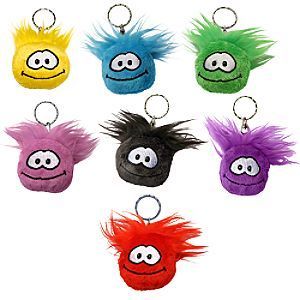Category: "Uncategorized"
Международный женский день
International Women’s day -Международный женский день is a holiday celebrated in Russia on March 8th every year. It began in America on February 28 in 1909 and the soviet union quickly followed suit. Russia first celebrated it in 1913 on the last week of February according to the Julian calendar that they used at the time which corresponds to March 8th on the Gregorian calendar. It is an official public holiday that is celebrated by both men and women in honor of the women in the world. Gifts such as flowers candy and cosmetics are some of the most popular gifts given to mothers, sisters, daughters, aunts, grandmothers, wives etc. Of the flowers yellow mimosas and roses are the most popular according to this site. One of the popular phrases heard to wish someone a happy women’s day in Russia is С восьмы́м ма́рта! [s vas-MYM MAR-ta] (I congratulate you) With March 8th! There are also some poems that are dedicated to this day. That can also be found on the site previously mentioned. The holiday brings pleasant upbeat feelings and another way to connect with the family. Other useful links are here and here
| Завтра будет Международный женский день. | Tomorrow will be International Women's Day. |
| Что вы делали на Международный женский день? | What did you do for International Women's day? |
| У нас нет Международного женского дня. | We do not have International Women's day. |
| В Америке не празднуют Международный женский день. | In America they don't celebrate International Women's Day. |
Упорство
We all have those moments of doubt in our skills ability and positive outcome of a situation when it seems like we cannot handle it the struggles. We then have two options: to give up or to tough it out and finish the race whether we come in first or not which is also known as persevering. The noun perseverance or persistance translates into Russian as упорство. This word is declined this way:
| Sg | Pl | |
| Nom | упорство | упорства |
| Acc | упорство | упорства |
| Gen | упорства | упорств |
| Pre | упорстве | упорствах |
| Dat | упорству | упорствам |
| Ins | упорством | упорствами |
| У него совсем не было способности к языку, но он занимался с таким упорством, что наконец-то освоил язык. | He had no talent for languages, but he studied with such persistence that he finally mastered the language. |
| Он всегда был неудачником, у него никогда не хватало упорства. | He was always a loser. He simply didn't have enough persistence. |
| Я переняла упорство у родителей. | I learned persistence from my parents . |
Persistence will get you through all the struggles of life. These struggles can be academic, sports related, relationship related, mental, emotional and physical, but we all have it in us to make it through whatever we are struggling with, whether that strength is solely on our own or with the support of our friends. I had a friend who was going through some tough issues at home with her family and at school with school work and friendships, and at one point she thought about killing herself. She stuck it out and while she is still struggling with a few things, she is at peace inwardly and is making the most of her life. Persistence paid off, I am glad she stuck around.

Оскорбление
In a perfect family we would always say nice and positive things to each other, but sadly we do not live in a perfect world, and sometimes we have to deal with insults. The Russian word for insult is оскорбление. This word declines this way:
| Sg | Pl | |
| Nom | оскорбление | оскорбления |
| Acc | оскорбление | оскорбления |
| Gen | оскорбления | оскорблений |
| Pre | оскорблении | оскорблениях |
| Dat | оскорблению | оскорблениям |
| Ins | оскорблением | оскорблениями |
| Это был не комплимент, это было оскорбление. | That wasn't a compliment. It was an insult. |
| Это оскобление очень задело его. | The insult really got to him. |
| Ей надоело терпеть постоянные оскорбления. | She got sick of the constant insults. |
| Я прекрасно умею справляться с такими оскорблениями. Просто не реагирую. | I know exactly how to deal with insults like that. I just don't react. |
Nowadays we have a new way to insult each other: it is called cyber-bullying. Cyber-bullying is bullying over the internet or using text messages or other forms of technology. Cyber-bullying is just as effective as physical or in-person bullying because the person is constantly messaged degrading and hurtful things, such as mean texts debasing imagery etc., and they can still feel isolated and hurt. I had one friend that was doing cyber-bullying to someone she did not like at her high school and almost got expelled. People are using the internet as a buffer to anonymously bully other people and/or say demeaning or disgusting things, but our culture has adapted to the point where we think it is ok and funny so we have websites like 4chan and other blog sites. Cyber-bullying is becoming a major problem in the 21st century and we need to teach our children and younger generations as well as ourselves that just because you can be anonymous does not mean you should say something hurtful, if you would not say it in real life to someone you should not say it over the internet.
Держать язык за зубами
The Russian phrase «держать язык за зубами» can be translated into English as 'to hold one's tongue' or 'to keep one's mouth shut'. Only the imperfective form of the verb держать is used in conveying this phrase, it conjugates like so:
| Imperfective | |
| Infinitive | держать |
| Past | держал держала держало держали |
| Present | держу держишь держит держим держите держат |
| Future |
буду держать будешь держать будет держать будем держать будете держать будут держать |
| Imperative | держи(те) |

Here are some examples:
| -Не говори моей жене, что я слушаю Джастина Бибера в машине! -Я буду держать язык за зубами. |
-Don't tell my wife that I listen to Justin Bieber in the car! -I'll keep my mouth shut. |
| Когда она его спросила, выглядит ли она толстой, он держал язык за зубами. | He kept his mouth shut when she asked him whether or not she looked fat. |
| Ничего не говорите! Держите язык за зубами! | Don't say anything! Keep your mouth shut! |
| Я надеюсь, что она будет держать язык за зубами, когда милиционер спросит о её друзьях. | I hope she keeps her mouth shut when the cop asks her about her friends. |
Брелок
When people get a set of keys they normally attach it to something to put it with whether it was a lanyard or it is a key chain. The little decoration attached to a key chain is a ‘fob’ in English, which is known as брелок in Russian. According to most standard dictionaries this is how this word declines:
| Sg | Pl | |
| Nom | брелок | брелки |
| Acc | брелок | брелки |
| Gen | брелка | брелков |
| Pre | брелке | брелках |
| Dat | брелку | брелкам |
| Ins | брелком | брелками |
| У него нет брелка. | He does not have a key fob. |
| Мне не нравятся брелки. | I don’t like fob. |
| Что ты делаешь с брелками? | What do you do with key fobs? |
| Я узнала о брелках от друзей. | I learned about key fobs from friends. |
Those are the little charms or trinkets that a person can use to accessorize their keys and help keep a better track of them. There are ones for both ones for men and women. Guys normally choose ones such as bottle openers or more masculine ones where as girls have more options such as teddy bears, butterflies, or hearts. Personally I have cartoon characters. There are also ones that you can use to show support for things such as the support ribbons or national ones. Holidays have their own key chains or ones from movies. They make good gifts for little kids or friends. My friend for one Christmas got our group of friends all matching ones.There are two declensions of брелок because there is the formal form and the colloquial form.

Don comments: The word брелок is actually undergoing a shift in Russian. Originally the word was borrowed from French breloque, and in the sense of a pendant or decoration that hangs from a bracelet or pocket watch, it always declined like this:
Sg Pl Nom брелок брелоки Acc брелок брелоки Gen брелока брелоков Pre брелоке брелоках Dat брелоку брелокам Ins брелоком брелоками Nowadays almost no one has a pocket watch, much less one with a decoration, so the word is very commonly used to mean a fob on a key chain. In that sense the declension that Janell mentioned is much more common. There is a nice discussion of the issue at rg.ru (mirror). My own advice at this stage would be to use the new declension in conversation, and the old version in professional writing.